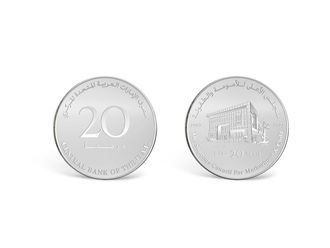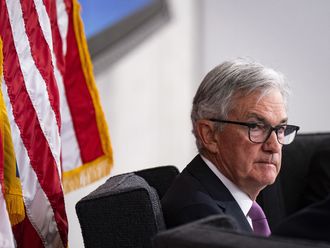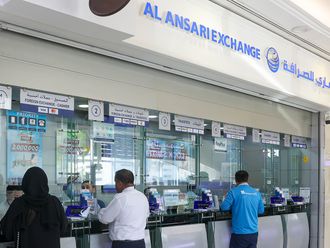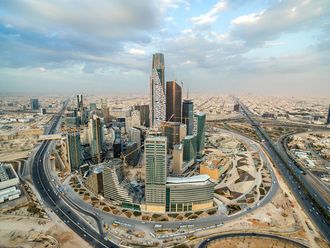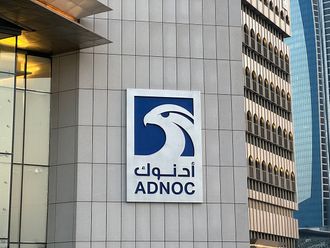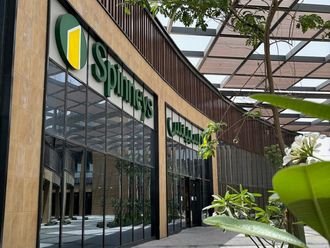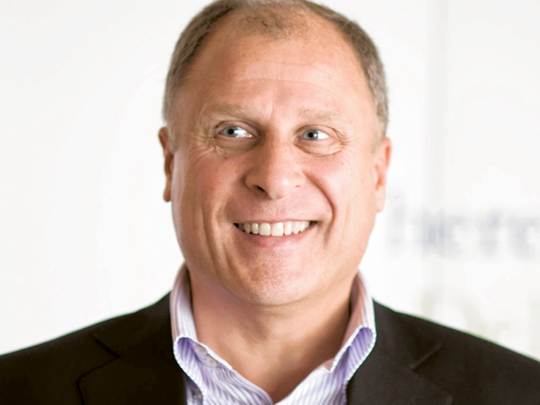
Dubai: Deloitte & Touche (ME), a member firm of Deloitte Touche Tohmatsu Limited (DTTL), has been in the Middle East for 85 years. The company is among the region's leading professional services firms, providing audit, tax, consulting, and financial advisory services through 26 offices in 15 countries with over 2,200 partners, directors and staff.
Speaking to Gulf News in a recent interview, Omar Fahoum, Chairman and Chief Executive of Deloitte & Touche (ME) said the firm has emerged as the largest professional services organisation in the region.
Although becoming the largest was not an objective in itself, he said the position has helped the company to sharpen its service delivery quality across the region. As part of its ongoing expansion Deloitte aims to open its first office in Iraq and is working on an add-on acquisition to grow its Middle Eastern presence.
Gulf News: Your role as a major professional service organisation that provides services ranging from audit, consulting and financial advisory services across the Middle East gives you a better understanding of the state of the economy in the region. With the kind of information available to you, what is your forecast for the region?
Omar Fahoum: From where we stand we can say that this region was not severely impacted by the financial crisis. The Gulf region has certain dynamics that distinguish it from other parts of the world.
We expect the region to recover faster as there has been a stable range of oil prices which enables the public sector and the governments to continue remain the largest spenders. The crisis has made the Gulf states to spend judiciously and focus more on sustainable return on investment.
The government spending in the region is at unprecedented levels. We expect this type of boost to support the type of economic growth in the range of 3-3.5 per cent projected by agencies such as the Economist Intelligence Unit (EIU) and the International Monetary Fund (IMF).
Overall the growth expectations are positive and the growth forecast is much better than many other parts of the world although significantly lower than leading emerging markets such as China and India.
Deloitte had announced a $1 billion investment programme for priority markets across the world. Is a significant amount from this going to be invested the Middle East and North Africa region?
Deloitte globally has identified five priority markets. The Middle East is one of them and these are the markets where we anticipate significant growth opportunities. In these markets we want to scale up our investments over a five year investment programme. These investments are not going to be equally distributed across our priority markets such as India, China, the Middle East, Far East and Russia. These are markets that have different scales and to that extent the investment will be distributed proportionately.
At the global level how big is the size of revenues generated from the Middle East?
It is not a very significant share of our global revenues. But we see big opportunities to scale up our revenue base in the region. But more importantly the profile and nature of the clients in the region who have wide global reach make them important for our global network. Many of the regionally based organisations have global operations. For example the sovereign wealth funds from the Gulf. These are organisations that have global investments and we work with them across the world in different markets where they have their investments.
You have announced big plans for Islamic finance industry with a major resource base in the Middle East. Do you think it is going to emerge as a major line of business for you?
Islamic finance is here to stay. It is not a fad or just another flash in the pan. The industry has close to $900 billion in assets with nearly 60 per cent of it concentrated in the GCC and 80 per cent of the Islamic financial institutions are based here.
Takaful (Islamic insurance) is also a very important component of the Islamic finance industry. It is growing at the rate of 20 per cent per annum.
Deloitte has recently set up the Middle East Islamic Finance Group and a new portal that form an integral part of Deloitte's wider Global Islamic Finance initiative. This new initiative represents a significant investment by Deloitte, with the appointment of dedicated Islamic finance senior practitioners whose focus will be Islamic finance within the Deloitte disciplines of consulting and financial advisory services complementing the existing team in assurance, tax and risk services. The team has the added dimension of the newly-formed Islamic Finance Knowledge Centre based in Bahrain, designed to provide thought leadership and research.
The new Deloitte Islamic Finance portal is a resource for all participants in the Islamic finance industry that includes insights from prominent Islamic finance industry figures and Deloitte thought leadership publications.
It will also enable interaction by users to share their views on some of the most pressing issues and challenges facing the Islamic finance industry.
You have been expanding your Financial Services Advisory Practice in the region with special focus on mergers and acquisitions. What are your expectations for the regional M&A business? Deloitte itself has been a player in M&A activity; do you plan any more acquisitions in the region?
M&A activity in the region is picking up pace. But definitely it is not anywhere close to its pre-crisis peaks. But we are noticing uplift in the private equity transactions and IPOs and some modest activity in M&A. However, as I said, the deal flow is much below its potential and we expect a gradual revival.
On our own acquisitions, we recently acquired Price Waterhouse Coopers' audit practice in Kuwait. That brought significant addition to our business in the region. The transaction brought almost 100 additional people and almost 100 per cent of their client base.
We are in negotiations with a regional advisory firm for a potential acquisition and we expect to make an announcement in early 2011. It is not a multi-million M&A deal. In our kind of business we target knowledge base and skill pools of our acquisition targets.
Deloitte has been a part of the Dubai World restructuring. How do you see the impact of restructuring affecting the reputation of Dubai?
The announcement of the standstill and its timing did have a big impact on the global markets. But ultimately the way it has been managed through direct intervention of the government and meeting creditor obligations is proof about the commitment of Dubai World to its creditors.
And if you look at the restructuring model, they have achieved a 100 per cent agreement with creditors.
Typically in these kinds of situations it is very difficult to get unanimous agreements. And finally the agreements with these creditors resulted in minimum write-offs for the creditors.
But the banks have turned extremely cautious since the Dubai World issue. The credit growth indicates that they are very reluctant to lend. Does this mean there will be more restructurings?
The banks in general are very cautious, not because of the Dubai World restructuring. The banks are going through a global exercise of deleveraging and rebuilding the balance sheets through restoring of the capital base.
We can't strictly rule out other restructurings but the financial situation has clearly improved with the availability of external funding channels now open to Dubai-based entities.


